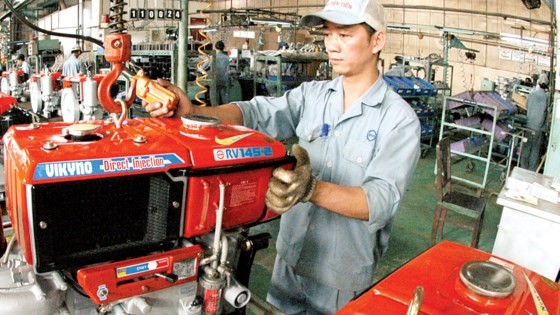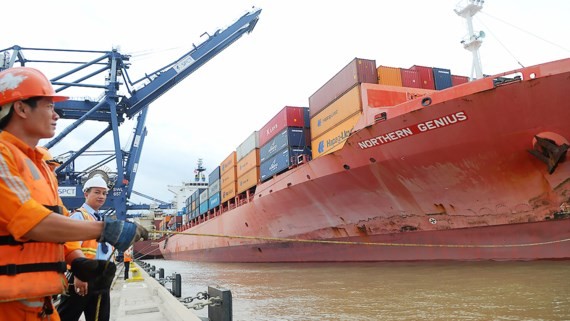
That means over 60 percent of the remaining of commodities are imposed Most Favorite Nation (MFN) tariff much higher than the rate of 0-5 percent in FTAs.
Deputy head of the department Tran Thanh Hai said that one of reasons making businesses yet to get the best out of FTA preferential treatments is that they have not been fully aware of origin regulations. Therefore, they have been unable to get preferential certificate of origin (C/O).
At a recent conference, Mr. Dang Thai Hien, deputy head of the Supervision and Management Division under the HCMC Customs Department said that the country now has only 500 cases predefining harmonized system codes, five predefining customs values and no case predefining export import goods origin.
These numbers are lower than countries in the region, causing a big disadvantage for Vietnam’s trade because if goods code, value and origin are predefined, customs declarers will be proactive to calculate the amount of tax they need to pay while doing customs clearance procedures. The predefining will make customs procedures transparent and unified nationwide and prevent negative issues in the customs sector.
Vietnam has so far signed 12 FTAs with 56 nations and economies in the world, positively taken part in negotiation of Regional Comprehensive Economic Partnership (RCEP) and entered ASEAN Economic Community. Besides, the country has wrapped up negotiation of four FTAs.
Experts said that with the increasing FTA participation, Vietnam has become one among three nations in the region with deep, wide and quick integration which is showed through drastic implementation of policies to open the market’s door.
That creates a condition for Vietnam to promote available advantages, improve the market’s competitiveness and contribute in the country’s overall reform process.
Still the volume of goods taking advantage of FTA tax incentives has been low. Explaining this, experts said that businesses have been indifferent and afraid of applying new ways of doing.
A HCMC leader said that at the end of April, a ministry held a big workshop on integration matters with prestigious lecturers. Still there were less than 20 attendees comprising experts, agency representatives but no business.
FTAs have seemed to draw the attention of state agencies, he said.
 A container ship at a seaport in HCMC (Photo: SGGP)
A container ship at a seaport in HCMC (Photo: SGGP)
According to calculations, the full implementation of FTAs will reduce trade costs to 14.3 percent; save one and half a day of customs clearance time for import items, a reduction of 47 percent compared to current time; and slash nearly two days for export items, dropping 91 percent.
Studies by the World Trade Organization show that implementing FTAs, developing nations will raise export volume of new products to 20 percent. Underdeveloped countries will see the goods export increase 36 percent.
























